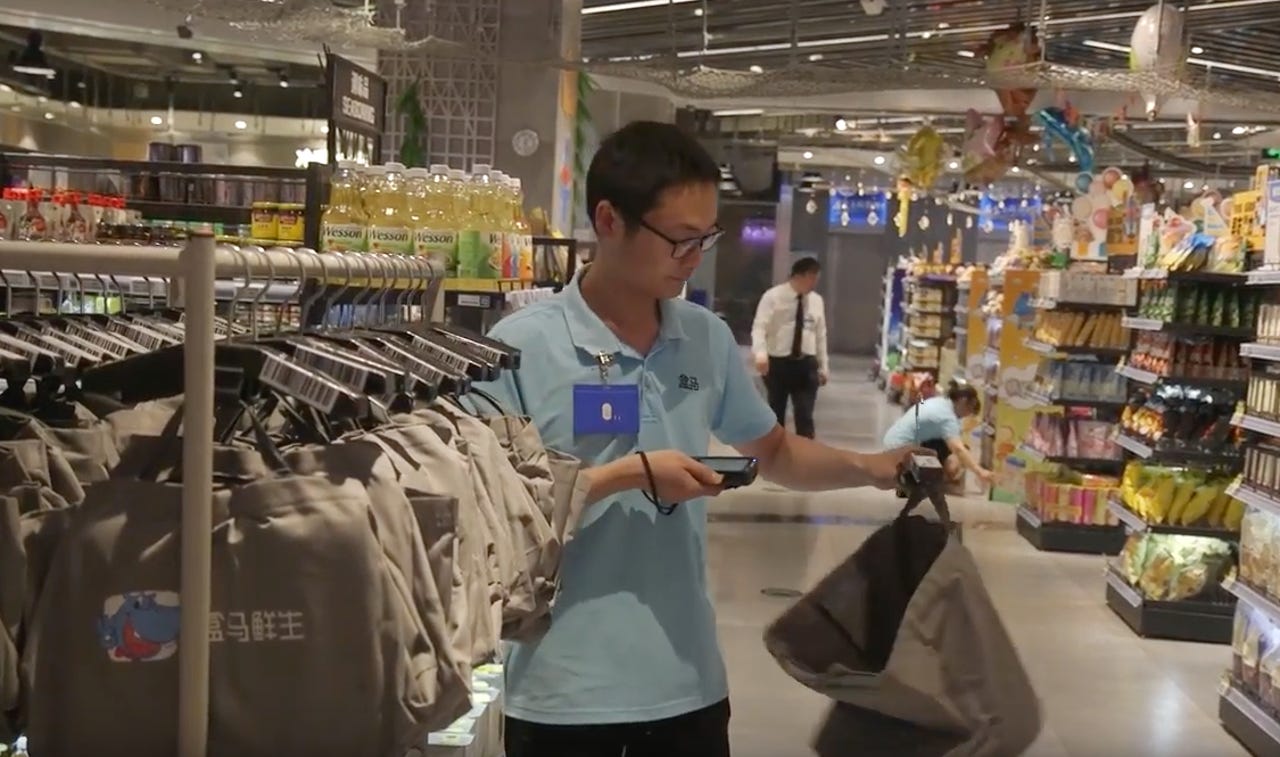Alibaba continues to push online-offline strategy with new stores


Hema employee scans items ordered online that are to be packed into a delivery bag.
Alibaba Group has opened another three stores in Beijing and Shanghai, pushing its network of physical sites to 13 across China where it continues to push its online-offline strategy.
The launches were part of the e-commerce operator's Hema, or "new retail", strategy that was first unveiled in 2015 as a move to "reinvent" traditional supermarkets by marrying online and offline experiences, it had said.
Tapping Alibaba's investment in big data and technology, Hema stores are stocked with items that can be identified with barcodes, providing customers with information about the products as well as recommendations of similar products. Customers can scan the barcodes via the vendor's mobile app, which is linked to its AliPay platform that can be used to pay for purchases at the counter.
Hema stores also serve as fulfilment sites for customer orders placed through the app, where on-site employees will scan and pick up items listed in each order and prep them for delivery. Each store serves a radius of 3 kilometres, making deliveries within 30 minutes of the order.
In addition, Alibaba offers a membership scheme for Hema shoppers who can sign up with their Taobao or Alipay accounts, enabling them to view and purchase available items from the nearest store. The app also tracks their purchase patterns, makes personalised recommendations as well as pushes product page customised for each user.
Using this data, Alibaba said it was able to curate fresh food and products for Hema stores based on customers located around that particular site. Its software algorithms also were used to plot delivery routes.
Since the opening of the first Hema store 18 months ago, the e-commerce giant said sales per unit area were three to five times higher than traditional supermarkets and conversation rates for Hema app users making a purchase reached up to 35 percent.
Alibaba added that Hema shoppers on average made four to five purchases a month and 50 a year. Online orders, on average, accounted for more than half of total orders, it said.
Alibaba Group CEO Daniel Zhang said: "We believe the future of 'new retail' will be a harmonious integration of online and offline, and Hema is a prime example of this evolution that's taking place."
However, Zhang said the vendor was not looking to operate a large grocery chain, preferring instead to use the on-site network to demonstrate the "benefits of new retail" to customers and other organisations keen to digital transform their own business.
With e-commerce accounting for just 15 percent of China's total retail market, Alibaba said it was targeting to digital transform the remaining 85 percent, rather than increasing the online share.
"China has become the world's biggest test lab of merging the online and offline worlds, racing ahead of the US and other markets," it said. "Hema is the most advanced manifestation of 'new retail' to date the world has seen, completely transforming the grocery shopping experience as we know it."
Touting the benefits of harvesting data, Zhang last week said algorithms and big data had removed much guesswork in the retail sector. "Via the internet, businesses can see the potential needs of customers by studying consumer behaviour data, and then design, market, sell, and serve in order to satisfy customers," he said, noting that data Alibaba collected from consumers had enabled the company to identify and meet customer needs.